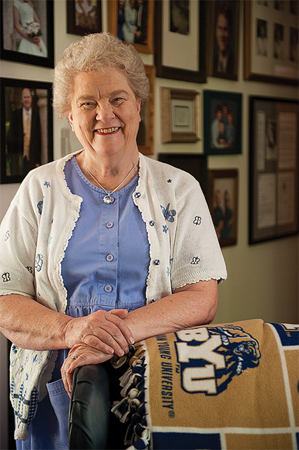STUDY OF ONLINE SHOPPER LIFESTYLES AND
ATTITUDES
By Grant R. Madsen, ’98
IF Internet retailers want sales to meet Wall Street expectations any time soon, they will need to retarget their marketing, address customer fear over credit card security, and make the experience less technologically challenging, says a new Marriott School of Management study of more than 4,000 Web users.
Funded by IBM and conducted by business management professors William R. Swinyard, ’65, and Scott M. Smith, ’71, the attitudinal study reveals the shopping behavior of eight online consumer types and which types would respond to marketing efforts designed to increase e-commerce sales.
The study divides shoppers and nonshoppers into eight segments, from Shopping Lovers to Fearful Browsers to Fun Seekers. Of the eight, Fearful Browsers represent the largest untapped opportunity for e-retailers to win online shopping converts, says Smith.
The researchers found that the average online household checks or sends e-mail messages two to three times a week, visits Internet sites for hobbies or to play games once a week, and visits auction sites two to three times a month. Also, about 35 percent of online households buy clothing online, 28 percent buy books and magazines, and 23 percent buy music; less than 10 percent buy flowers or tickets or pay for travel.
People like the Internet because it allows them to preview products and get product reviews and recommendations, the study showed. People also liked shopping on the Internet because it provides the convenience of home delivery and removes the hassle of having to drive to go shopping.
Things people dislike about purchasing online? Shipping charges, the difficulty of judging the quality of merchandise, the hassle of returning unwanted items, and the possibility of credit card numbers being stolen. Swinyard, obviously not a Fearful Browser, is curious about people’s aversion to using a credit card online.
“We will give our credit cards to a 17-year-old server at a restaurant, but we won’t give it to the computer of a professionally managed company. We are unusually fearful about the mysteries of cyberspace. But some of the fears are unfounded and can be minimized.”









